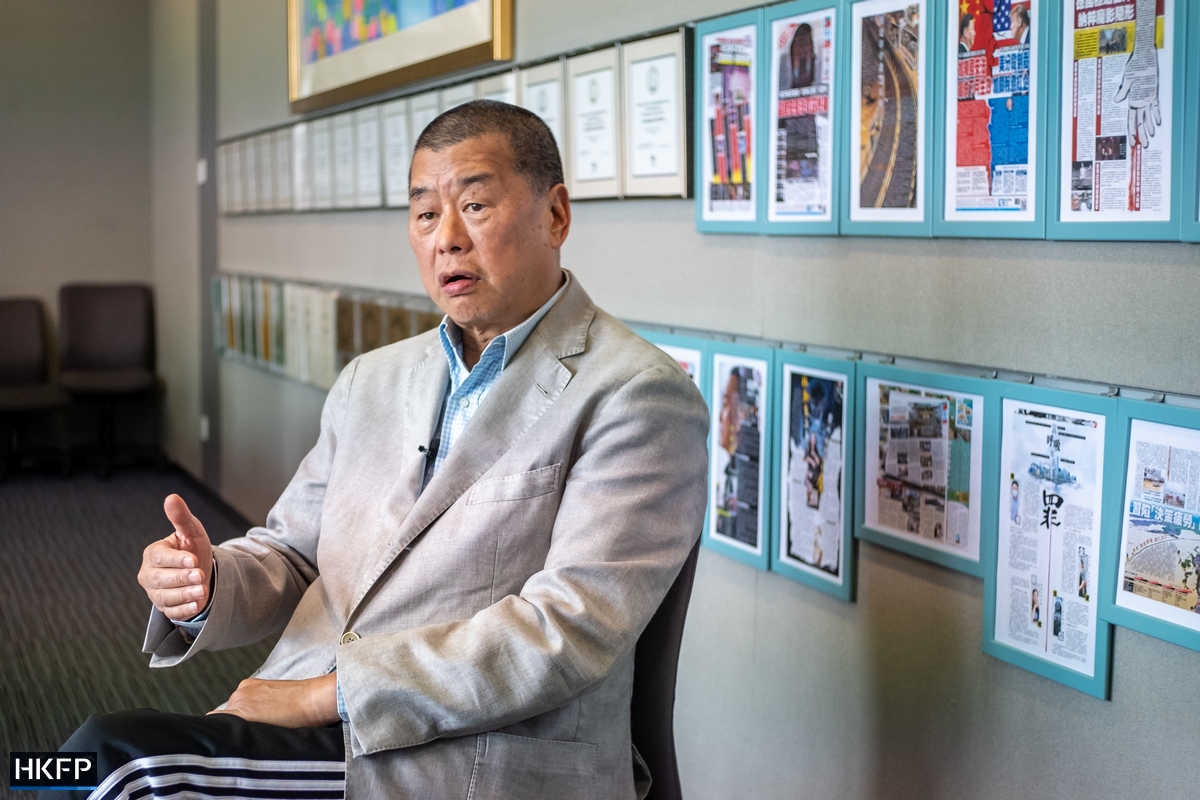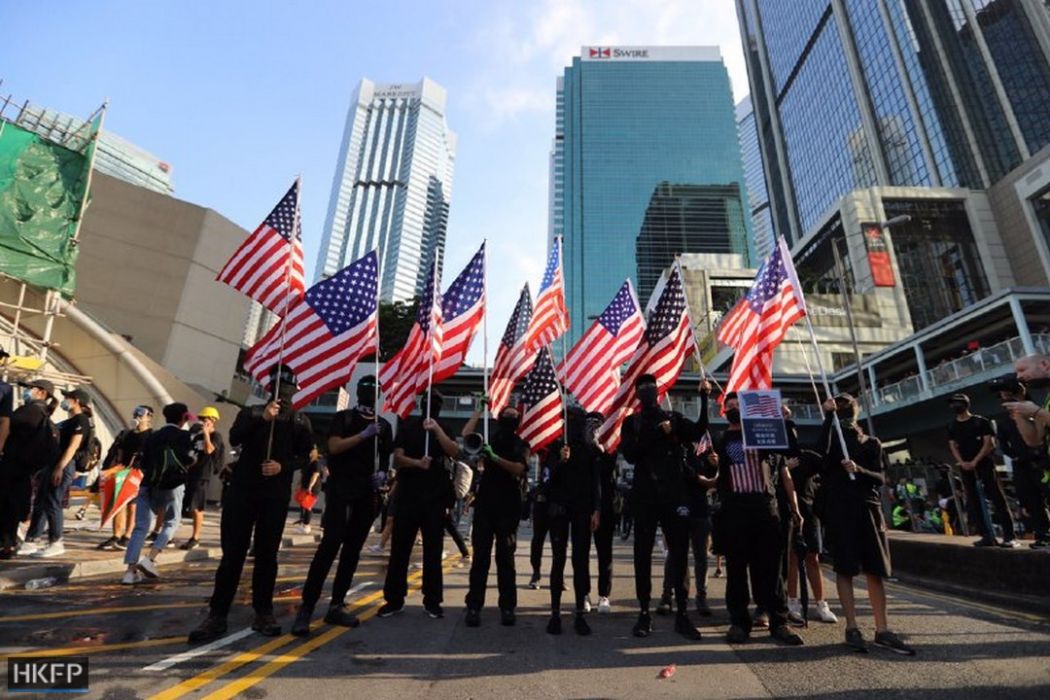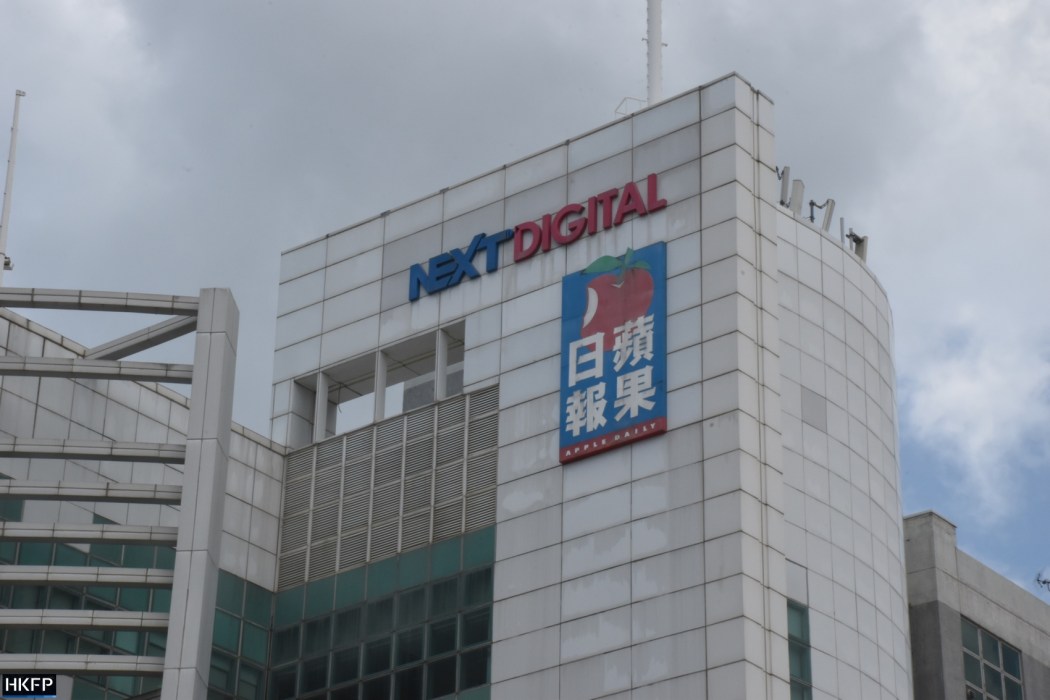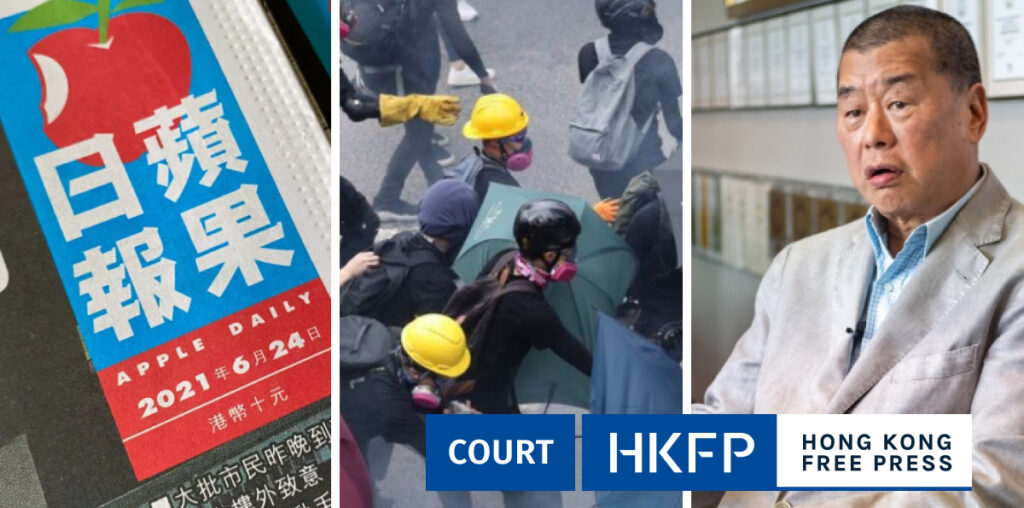Hong Kong media mogul Jimmy Lai has testified at his national security trial that urging other countries to speak up for the city’s pro-democracy movement does not amount to seeking foreign interference.

The 76-year-old, who wore a green sweater and a suit jacket, stands accused of two counts of taking part in a “conspiracy to collude with foreign forces” under a Beijing-imposed security law. He was also charged with one count of conspiring to publish “seditious” materials under a separate colonial-era law. He faces up to life in prison if convicted.
His lawyer, Steven Kwan, asked Lai about his newspaper’s online English version. The English version was launched in mid-2020, about a year before the outlet shut down following the arrest of its top editors. Apple Daily previously published only in Chinese.
Kwan showed the court WhatsApp conversations between Lai and his aide Mark Simon in May 2020, in which he said an English version would help capture the support of Americans and other foreigners for the city’s movement, serving as “political protection.” Their support would also benefit Apple Daily financially, Lai wrote.


Addressing the court, Lai elaborated, saying that readers would “naturally” speak up for the Hong Kong movement if there was an English version, and their voices could motivate their politicians to become aware of what was happening in the city.
“I just want people to notice, to take notice of what we are under,” he said.
When asked if he was trying to seek foreign interference, Lai replied: “If you think [them speaking] out for us is… interference, that may be so – but I don’t think voicing out for us is… interference.”
Kwan also questioned Lai as to what he “envisaged would be done by foreign politicians in voicing out for Hong Kong.” The mogul said perhaps politicians would speak with the Chinese authorities to express their concerns.


Lai added that, at the time, with the Covid-19 pandemic ravaging the world, there was an anti-China sentiment that provided a “good opportunity” for Apple Daily to start up an English version and “capture that emotional tug.”
95th day of trial
Friday marked the 95th day of Lai’s trial, which was originally scheduled to take 90 days. The media magnate has been remanded since December 2020.
Also on Friday, the court adjourned much of the morning’s hearing to give Lai time to read op-eds he published in Apple Daily from late 2019 to mid-2020, before the national security law came into effect.
The opinion pieces largely consisted of Lai’s views on the city’s pro-democracy movement, and included comments such as calling on the “peaceful camp” and the “resistance camp” to work together amid the Hong Kong government’s “suppression.”


Protests erupted in June 2019 over a since-axed extradition bill. They escalated into sometimes violent displays of dissent against police behaviour, amid calls for democracy and anger over Beijing’s encroachment. Demonstrators demanded an independent probe into police conduct, amnesty for those arrested and a halt to the characterisation of protests as “riots.”
The hearing resumed after lunch with Kwan asking Lai about the articles – one by one – and asking whether he intended to incite violence with his writing, per the prosecution’s accusations. Each time, Lai said no.
Kwan referred to an op-ed in which Lai wrote that education was an “important battleground for future resistance,” and that “for every teacher and headmaster incriminated for their words,” peaceful and “valiant” protesters must “stand up and sternly resist.”


Lai rebutted the idea that he was inciting peaceful protesters to “align with the valiant,” or that he was inciting violence with the word “resist.”
“Even [a] demonstration is resistance,” he said. “The whole movement is a resistance.”
‘Peaceful resistance’
Kwan pointed to another op-ed, published in March 2020, in which Lai quoted a famous speech by Winston Churchill, the prime minister of the UK during the World War Two. The lawyer did not read out the line that was quoted.
He asked Lai whether he had intended to use the quote to incite Hong Kong people to use violence against the government.
In response, the mogul said Churchill “didn’t say anything about violence,” and neither did he.
When Kwan said Churchill gave the speech against the backdrop of World War Two, and put the question again to him, Lai replied: “There’s no war here. I was using this to encourage people to save themselves.”


Lai added that he was advocating “peaceful resistance” against “the encroachment of China on our freedom.”
Kwan also asked Lai whether he thought “controlled violence” was acceptable. The mogul said it was not, but “at least it’s under restraint.”
“It’s inevitable that – in response to the violence of police – they will have some violent acts, but even that has to be put under control,” he said.
Kwan’s defence questioning is expected to take 15 days. The trial was adjourned to Monday, when the lawyer will continue asking him about Apple Daily’s English version before moving on to Lai’s Twitter account. Kwan said he would then go into the matter of lunch meetings held by the news outlet’s top management.


Such meetings were used by Lai to provide editorial direction, according to the prosecution’s case, though Lai on Tuesday testified that he generally “never interfered” in editorial management.
When Lai’s trial began on December 18, 2023, he had already spent more than 1,000 days in custody after having had his bail revoked in December 2020. Three judges – handpicked by Hong Kong’s chief executive to hear national security cases – are presiding over Lai’s trial in the place of a jury, marking a departure from the city’s common law traditions.
Beijing inserted national security legislation directly into Hong Kong’s mini-constitution in June 2020 following a year of pro-democracy protests and unrest. It criminalised subversion, secession, collusion with foreign forces and terrorist acts – broadly defined to include disruption to transport and other infrastructure. The move gave police sweeping new powers and led to hundreds of arrests amid new legal precedents, while dozens of civil society groups disappeared. The authorities say it restored stability and peace to the city, rejecting criticism from trade partners, the UN and NGOs.
Support HKFP | Policies & Ethics | Error/typo? | Contact Us | Newsletter | Transparency & Annual Report | Apps
Help safeguard press freedom & keep HKFP free for all readers by supporting our team



